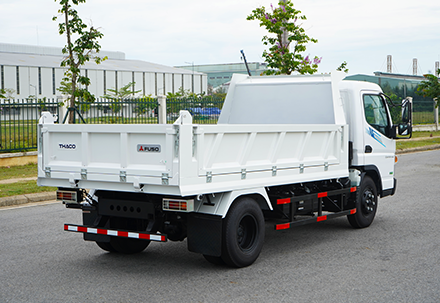Auto Body Parts Suppliers: Driving Sustainability with Eco-Friendly Materials
As global industries embrace sustainability, the automotive sector is under increasing pressure to reduce its environmental footprint. Auto body parts suppliers are at the forefront of this shift, adopting eco-friendly materials and sustainable practices that align with global green initiatives. By integrating innovation in mechanical engineering and supporting industries, suppliers are redefining how vehicles are built and maintained.

Xem Chi Tiet Bai Viet Tai: auto body parts suppliers
The Push for Lightweight and Sustainable Materials
Traditional steel remains widely used, but modern vehicles demand lighter and greener alternatives. Auto body parts suppliers are increasingly turning to aluminum, high-strength alloys, and composites that reduce vehicle weight while maintaining safety. Lower weight translates to improved fuel efficiency and extended range for electric vehicles (EVs).
Xem Tai: Shaping Automotive Reliability

Beyond metals, recycled plastics and bio-based composites are emerging as viable materials for bumpers, panels, and interior components, contributing to circular economy models.

Eco-Friendly Coatings and Surface Treatments
Supporting industries play a vital role in sustainability. Chemical suppliers are providing water-based paints, low-VOC coatings, and anti-corrosion treatments that minimize environmental harm. By adopting these eco-friendly solutions, auto body parts suppliers ensure durability and aesthetics while reducing toxic emissions from production.
Energy-Efficient Manufacturing
Sustainability extends beyond materials. Smart factories powered by renewable energy, automated systems that reduce waste, and energy-efficient equipment are transforming the production process. For suppliers, investing in these technologies not only lowers costs but also enhances brand reputation as responsible manufacturers.
Recycling and Circular Economy Models
A critical trend in the industry is the design of body parts for recyclability. Auto body parts suppliers are working closely with automakers to ensure that materials can be reused or repurposed at the end of a vehicle’s life cycle. This approach supports global efforts to minimize waste and build a closed-loop manufacturing system.
Meeting Regulatory and Market Demands
Governments and customers alike are demanding greener mobility solutions. International regulations such as EU emission targets and sustainability reporting standards push suppliers to adopt eco-friendly practices. By meeting these expectations, auto body parts suppliers gain access to competitive markets and strengthen long-term partnerships with OEMs.
Innovation and Future Opportunities
The sustainability movement also opens doors for innovation. From 3D-printed components using recycled powders to modular designs that allow easier replacement, suppliers can differentiate themselves through creative solutions. These innovations not only reduce environmental impact but also enhance cost-effectiveness for customers.
Conclusion
Sustainability is no longer optional—it is a defining factor in the future of automotive manufacturing. Auto body parts suppliers that embrace lightweight materials, eco-friendly coatings, energy-efficient production, and recyclable designs are positioning themselves as leaders in a greener era of mobility.
By aligning with global sustainability goals, suppliers not only meet regulatory demands but also drive innovation, competitiveness, and long-term growth in the mechanical engineering and supporting industries. With a sustainable development strategy, Thaco Industries continuously expands its production capacity and enhances service quality. The brand aims to deliver superior value while meeting the diverse needs of both domestic and international markets.
#auto_body_parts_suppliers, #autobodypartssuppliers, #Thaco_Industries, #ThacoIndustries, #Thaco_Industries
|